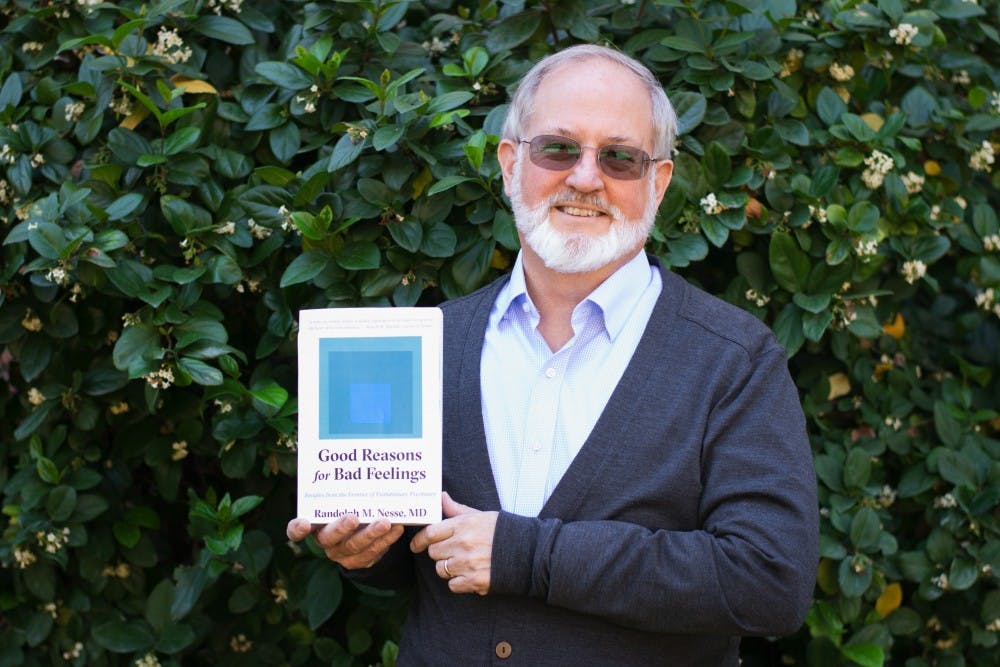Rather than running from emotions, an ASU professor's new book shows that emotions may run us.
As a professor of life sciences and director for the Center for Evolution and Medicine as well as a psychiatrist, Randolph Nesse has been working on his book, "Good Reasons for Bad Feelings" for 15 years. The book illustrates that negative feelings may have roots in evolution and survival.
He said that while exploring reasons for emotions is “nothing radical,” he aims to ask and answer a completely new question regarding human emotion and motivation.
“Patients will tell me that once they know anxiety has a purpose, it changes their attitude,” Nesse said. “For the people I give prescribed medications to, knowing the reasons behind what they feel shifts the question away from simply ‘Is this going to cover my symptoms?’”
His book, which has been featured in a BBC podcast, discusses the idea that emotions exist to benefit genes rather than increase quality of life.
An example of this would be jealousy inspiring someone to work out. Nesse’s book suggests that though the motives for exercise may not be healthy, it is a genetic advantage to be physically fit.
According to the National Institute of Mental Health, depression is the most common health problem for college students. The Anxiety and Depression Association of America also identifies anxiety disorders as an extremely common mental health condition on college campuses.
Michelle "Lani" Shiota, an associate professor in psychology, said that for students, understanding their emotions and learning from them is something that all students can do.
"There's a message we get all the time in pop culture: We should be happy all the time, and we should get rid of any bad emotions," Shiota said. "Looking into the reason why you're feeling what you feel gives us a chance to say 'I feel this, is what I feel right? If so, what do I need to do from here?'"
She said being able to identify the reasons and emotional patterns behind negative feelings will help people become more aware of how they see the world.
Nesse said that even though his book was not written to provide “quick advice,” he mentioned that a very valuable lesson people can learn from their emotions is knowing when to release pressures that come with expectations.
“There is a system built into all of us that pushes us to do things that we deem doable,” he said. “Learning to give things up that aren’t working — not too early and not too late, is a very valuable skill. On the opposite end, it’s important to know when to persist."
Carlo Maley, an associate professor in the School of Life Sciences, said that while humans have the ability to make moral and thoughtful decisions, they are still another branch in the tree of life.
“Something that makes people a bit uneasy is the idea that genes can predict the way we act,” Maley said. “Emotions being driven by evolutionary and not personal gain is a bit animalistic, but that’s because we are apart of the animal kingdom.”
Nesse said that while his book took years of research, it also took some time for it to find its home in the publishing field. Published by Penguin Random House, Nesse said it took a year to convince the publishers to take his book and that he received some great advice from them along the way.
“I wanted to ask a new question and use evolutionary biology to understand emotion and why we’re vulnerable to disorders,” Nesse said. “One thing I’m happy about is that the book says what I want it to say.”
Reach the reporter at kreinha3@asu.edu and follow @ReinhartKatelyn on Twitter.
Like The State Press on Facebook and follow @statepress on Twitter.




